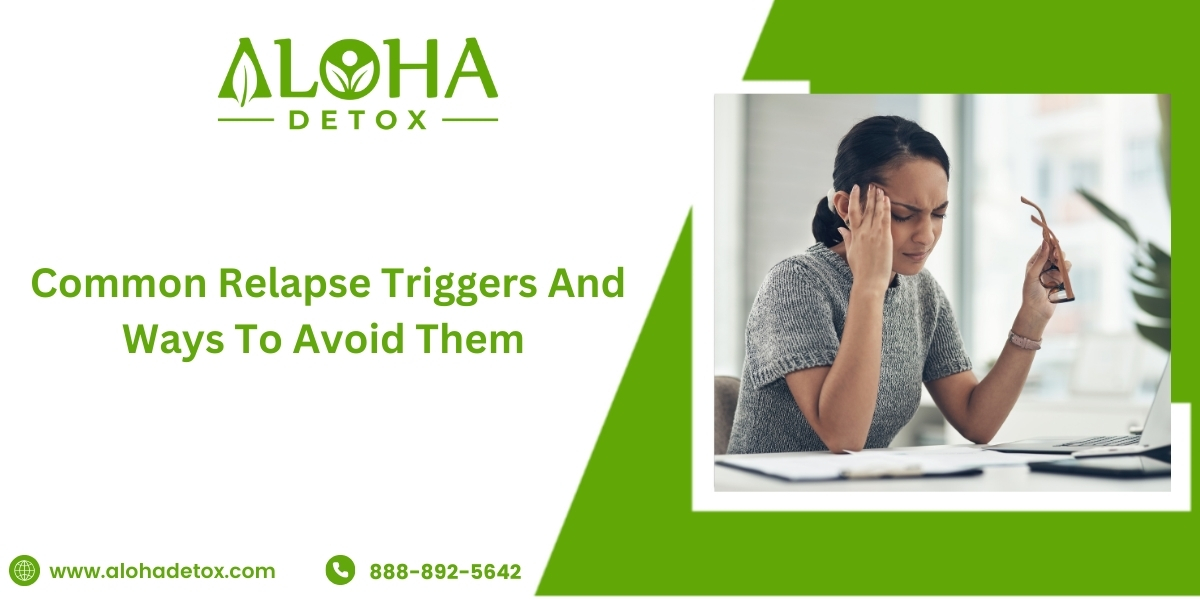
Common Relapse Triggers And Ways To Avoid Them
It is recorded, almost 85 percent of individuals are prone to relapse in the first year after receiving treatment.
To trounce your addiction, you need to apprehend the pattern of relapse and its triggers. After transitioning from rehab and restoring to daily schedules, you might encounter several triggers and people to create barriers in your recovery journey. If you are actively in recovery mode, you might probably realize myriad triggers and pitfalls. Still, possibly there is a solution of Group Therapy Florida in a detox centre that can help you combat block of relapse.
Relapsing doesn’t mean you have failed; it means you are persistently intensifying your sobriety goals and trying your best to overcome the disease. Some experience full relapse and skid on old patterns and habits, while some experience partial. Though it is difficult to predict the time and specific incident that triggers relapse, some common relapse triggers could be dealt with by developing a response plan.
Warning Signs of Relapse?
The greatest danger of relapse would strike out in behavioural and mental changes. Some of them are
- Changing priorities of recovery and lean more towards abuse
- Compulsive behaviours
- Isolation
- Withdrawal from support groups
- Irritability
- Restlessness
- Discontent
- Unfocused towards work or job
Stages of Relapse
Although there is no sure way cure for addiction, there are certain factors that you could avoid to prevent relapse. Relapse is total dysfunction; the person continually engages and drags into a herd of thoughts and behaviours that sooner or later destabilizes recovery and evokes a person to use alcohol or drugs. Proactive and ongoing efforts to counter addiction disrupt the effects on your brain and gradually lead towards the journey of sobriety.
Emotional Relapse
Emotional relapse is considered the first stage where the person choked with trouble and confusing feelings. A person might not constantly embrace the thoughts about using it, but it provokes the memories from the past and reveals what it was used to feel like when you did.
Typical signs of relapse include:
- Suppressing your feelings
- Altering eating and sleeping habits
- Avoiding attending recovery meetings
- Poor hygiene
- Irritability
- Isolating from friends and family
Mental Relapse
It is a stage where your thoughts drift and incline to use again, even if a fraction of your inner feelings does not support that part of your life. This stage can be tricky as there is an intense struggle inside. It could be tough to come back if you drive with feelings, so you have to have a strong foundation of a relapse prevention plan and get a family member or Group Counselling.
Signs of Mental Relapse
- Glorifying past drug and alcohol consumption
- Intensified cravings
- Indulging and hanging out with people with whom you used drugs or alcohol
- Drafting next time occasion to use drugs
- Thinking about how to use controlled drugs or alcohol
- Lying to your friends and family
Physical Relapse
Physical relapse is the final stage that clearly depicts the involvement of drug or alcohol use. It could last from minutes or months, and it’s a warning sign that the person needs comprehensive treatment.
Get Help
Relapses are the reality of recovery. If you have experienced setbacks or know someone who needs treatment or help with addiction, 888-892-5642 Call Aloha Detox. We can offer you complete medical detox that flushes out harmful toxins from the body and emphasize the recovery process.
